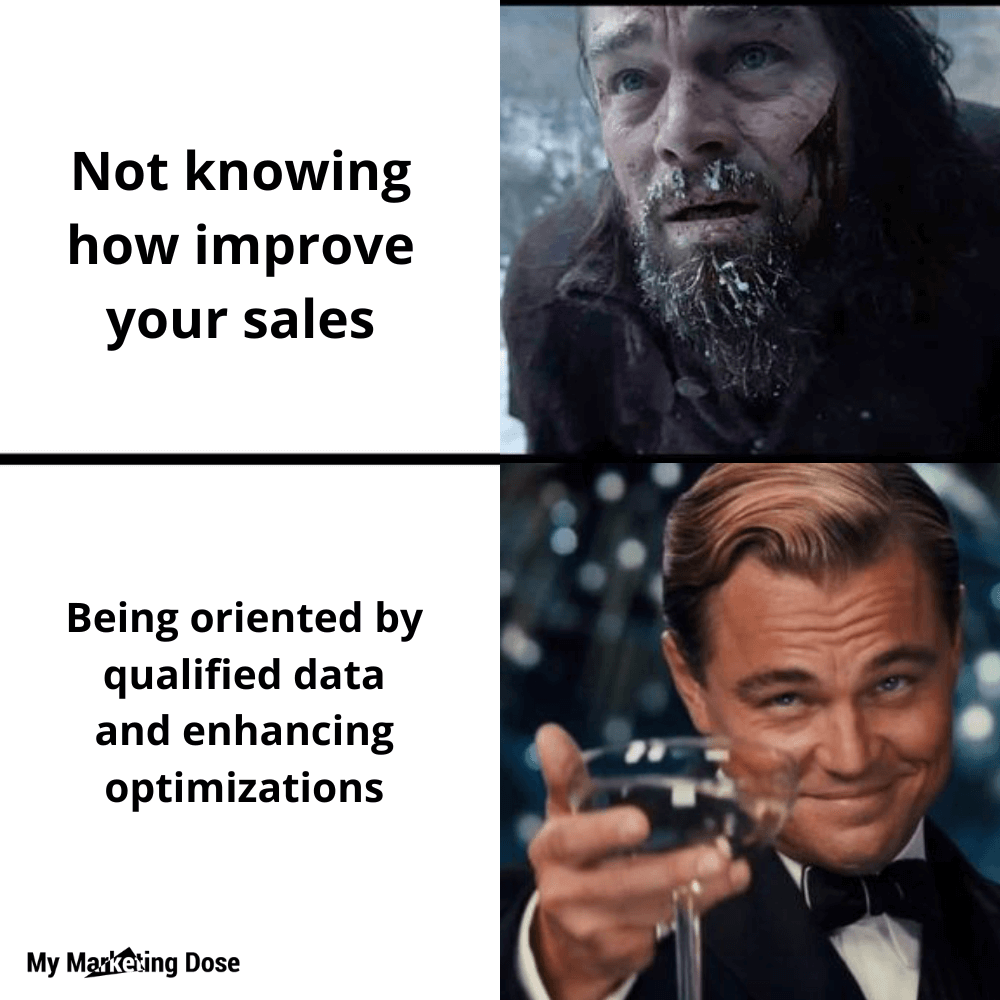Much like Sherlock Holmes deduces the truth from every subtle clue, mastering Smart Questions is the data detective’s path to unveiling insights and being capable of great Data-Driven Actions and decision-making along your business journey.
WWH Marketing Strategy
WWH is not an abbreviation for World War Hulk or World War Heros the mobile game, this was the first thing that pop-up searching on the internet.
WWH is an abbreviation for What, Why, How method,the kindly translation of “OPC (O quê, Porquê, Como)”, method of my countrymate from Brazil, Gustavo Esteves. Let’s go right through it.
Showcase of an ecommerce applying WWH
This company has always seen excellent performance selling truck wheels in concurrent physical stores, but the sales of recently launched ecommerce was equivalent to 3% of the revenue.
- A quantitative research was made, asking customers why they don’t buy wheels online.
- Was clarified that customers liked to buy more than one wheel per order because the physical store always gave them extra discounts and offered lower price similar products. Besides, when going to that trucker place, they could see how the wheels looked beautiful when applied on the trucks.
- Based on that data, two optimizations were made on the ecommerce:
– Kits with 2, 4 and even more wheels were created, allied to lower ticket buy together items on the product page.
– Also, the marketing team photographed trucks with nice applied wheels, putting a “Client photo” tag on the product images.
- One month was defined to measure these actions.
Result: In the next months, the truck parts ecommerce increased on 71% on orders to wheels, impulsing 52% the ecommerce revenue, by selling better these high ticket products.
W (What): We need to increase sales on truck wheels.
W (Why): Because the truck wheels category represents a relevant revenue enhancer.
H (How): Analysing data, we can identify what are the customer preferences on truck wheels in physical places because they buy more than one per order, with discounts and yet can see how well it looks on other client trucks.

It’s a simple and worthwhile way to drive actions.
This method is found in Gustavo Esteves’ book: “Menos Achismo, Mais Dados”, who can be translated on “Less Guesswork, More Data” (which is a bad*ss title). Currently, the book can only be found in portuguese (no, Brazilians don’t speak spanish).
SMART Questions playbook
Imagine you’ve got loads of cool info and fancy tools, but your data is like a lazy investigator with no suspects to interview. It’s like having all the puzzle pieces but forgetting to ask where they fit.
But we’re not lazy investigators, so as Holmes would say, “The game is afoot” in the realm of data analysis!
So, let’s keep it simple and learn how to ask the good questions and avoid the boring stuff.
Specific – Simple, significant, and focused on a single topic or a few closely related ideas
Measurable – Can be quantified and assessed
Action-oriented – Encourage change
Relevant – Matter, are important, and have significance to the problem you’re trying to solve
Time-bound – Specify the time to be studied
Doing Smart questions, you’ll go from: “Do people enjoy our online shopping website?”
To: “What proportion of consumers report a high level of satisfaction with the efficiency of our online shopping, considering factors like delivery speed and product quality?”
From: “Are people interested in our new product?”
To: “How many unique visitors accessed information about our new product within the first month of its launch on our website?”What an upgrade asking questions, right?

Now you know more about this technique, even if they aren’t as “smart” as you think, it’s crucial to keep in mind the importance of fairness.
Example: What do you love more about our product? – You’re assuming that the customer love your product.
Remember to ensure that you don’t create or reinforce bias by formulating fair questions.
Ecommerce Example of SMART questions
- Specific: “What are the main sources of traffic for our ecommerce website, and how have they evolved in the last three months?”
- Measurable: “What is the average conversion rate per traffic source, and how has this metric varied since the beginning of the last marketing campaign?”
- Action-oriented: “Based on the most popular entry pages, how can we optimise the content of these pages to increase user retention?”
- Relevant: “Which products or categories are generating the most revenue, and how can we adjust our marketing strategy to highlight these items?”
- Time-bound: “What was the impact on bounce rates after the latest website updates, and how can we improve the user experience in the next two months?”
Consider Google Analytics our trusty ecommerce partner. Now, these questions? They serve as our investigative methods, unlocking the secrets to elevate our online strategy to the next level.

Importance of Data interpretation
You can have the right questions, even collect precise data, but an error interpreting all these together, and all the work can lead to big losses. Don’t forget to look over all the relevant information. Bellow there’s a real example.
Coca-Cola Oops Moment
Back in 1985, Coca-Cola switched to New Coke, thinking it was cooler than the old one. They did taste tests with 200.000 folks and decided, “Hey, New Coke is better than Pepsi!” So, they said goodbye to the classic Coke.
But hold up – the new flavour was a disaster! Coca-Cola lost tens of millions, like, big-time. How did this mess happen when the info seemed okay? Well, turns out, they missed something. They didn’t think about how folks would feel losing the classic Coke. The company messed up, making a choice based on not-so-complete info.
That’s the relevance to data interpretation.

Conclusion
Using WWH, allied to SMART Questions with good data interpretation, is like the Holy Trinity of marketing strategy. Make one complement another and you can have faith that what you’re doing is good for your business. Amem.




